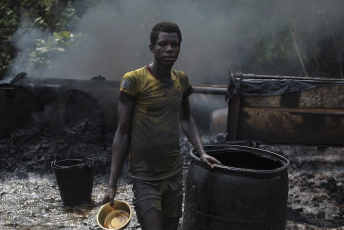The victim–offender spectrum of human trafficking is characterised by blurred lines and complex circumstances. Recognising varying degrees of voluntariness in individual cases of women along this spectrum would allow legislators and the justice system to understand the complicated contexts in which women intersect with trafficking, where culpability is not always clear-cut. States have a responsibility to develop legislation, policy and strategies that reflect this nuance and enable more effective interventions for those who fall anywhere on this spectrum.
About the authors
This research paper was authored by Nasreen Solomons and Harsha Gihwala, with contributions from Professor Lillian Artz, Chloë Fuller and Dr Leoba Nyathi from the Gender, Health and Justice Research Unit in the Faculty of Health Sciences at the University of Cape Town and edited by Romi Sigsworth.
Image: Amelia Broodryk/ISS







